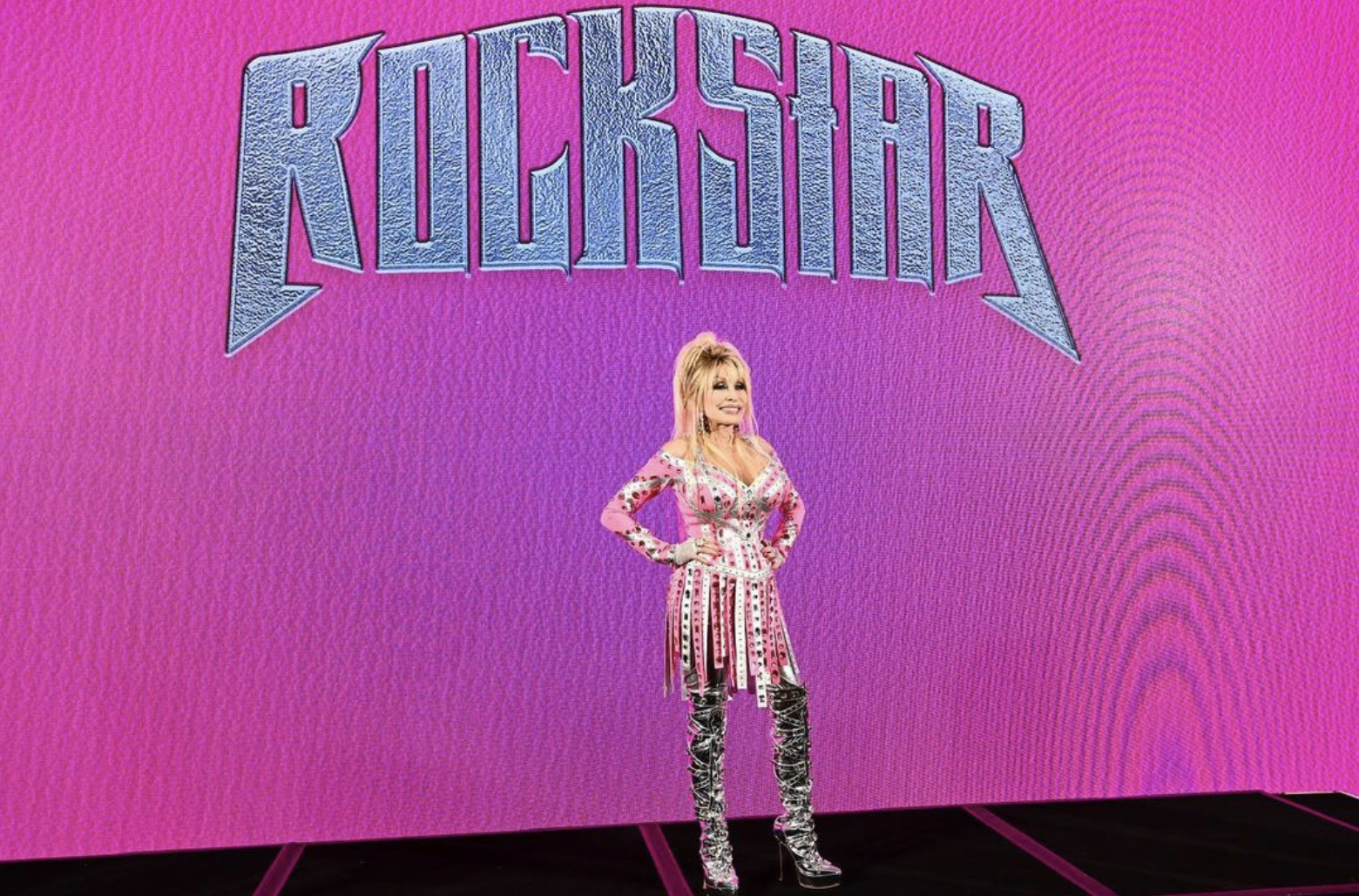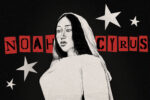Americans of every generation adore Dolly Parton. She is an institution, embodying kindness, generosity and sass in her successful, decades-long career. Her childhood as one of twelve children growing up in a one-room cabin in Tennessee, surviving on her father’s sustenance farming, has made her rise to the status of country music legend incredibly inspiring. At seven years old, she made her first guitar out of an old mandolin and two bass strings. She has never forgotten her roots growing up as a poor farmer’s daughter in rural America. She was married to Carl Dean in 1966 and the couple are happily together today, bringing personification to the saying, “She’s everything. He’s just Ken.” Parton uses her celebrity to help others, becoming a noted humanitarian. Her legendary generosity has deservedly earned her the Carnegie Medal of Philanthropy, exemplified in her million-dollar donation to Vanderbilt University Medical Center to fund the early stages of the Moderna COVID-19 vaccine. Her inspirational personal triumphs, award-winning music and renowned philanthropy have made Dolly Parton beloved by Americans of every generation.
1960s
Already a prolific songwriter and musician, Dolly Parton moved to Nashville just one day after graduating from high school, illustrating the drive and ambition that led her to leave her poor, rural, coal-mining town behind even at a young age. Signed to a label at 19 to sing bubble-gum pop, she immediately shrugged off the limiting characterization with which men in charge attempted to label her and began making an impression on the country music industry. She wrote many charting country songs, some of which were recorded by country music legends Kitty Wells and Hank Williams Jr. Parton states, “I write something every day, and I take myself more seriously as a songwriter than anything else.” In 1967, she released her first album, “Hello I’m Dolly,” and appeared on TV for the first time as a recurring performer on “The Porter Wagoner Show,” setting the stage for even greater things to come. Wagoner became Parton’s partner in both music and TV. In 1968, the release of Parton’s song “The Last Thing on My Mind” kicked off an uninterrupted 10-year string of hits.
1970s
Dolly Parton’s popularity exploded in the 1970s and she became a household name among most Americans. She continued to top the country charts with the songs she’d written and sung with Porter Wagoner, a pivotal figure in her life. From that fertile creative partnership came the iconic ballads that would cross both genre and medium, searing their way into romantic hearts across America. “Jolene,” serves as a dynamic shift for Parton in 1974. The heart-wrenching ballad of one woman pleading with another to let her keep her love hit number 1 on the country charts and made a genre-breaking jump onto the pop charts, coming in at number 60, popularizing Parton’s melodious voice and legendary songwriting capabilities.
After a string of No. 1 hits, as well as an award for Best Vocalist of the Year, Parton ended her professional musical and television association with Porter Wagoner and premiered her own syndicated TV show, “Dolly,” to high ratings. From the emotional end of her and Wagoner’s creative partnership would come Parton’s best-known and loved ballad, “I Will Always Love You,” cementing her successful crossover onto the pop charts into a lucrative decade-long pattern.
In 1977, Parton released her first self-produced album, taking full creative control of her career. The late 1970s saw Parton appearing on TV more frequently, making her bubbly personality, kind heart and charming wit familiar to all Americans. Her acting during an appearance on the variety show “Cher” earned her an award for Outstanding Supporting Actress.
1980s
Dolly Parton began the 80s with a triple No. 1 hit that topped the pop, country and adult-contemporary charts. The song, “9-5,” was also the name of the feature film Parton starred in alongside Jane Fonda and Lily Tomlin, making her film debut. Both the song and the movie became immensely popular, catapulting Dolly Parton’s career to new heights. “9-5” became the unofficial work theme song for many women during this time, relating closely to Dolly Parton’s character in the film. In 1982, Parton starred in her second film role in the hit movie “The Best Little Whorehouse in Texas.”
After achieving success on the big screen, Dolly Parton was inducted into Nashville’s Songwriters Hall of Fame in 1986. More importantly, Parton’s philanthropy efforts were beginning to be felt during this year. Dollywood opened and immediately began creating jobs in the local community. The theme park named after her is located where Parton grew up in an impoverished area of Tennessee. In 1986 Parton established the Dollywood Foundation, named after her popular theme park. The foundation offered scholarships to high school students in the Sevier County, Tennessee region to help decrease the dropout rate. This tactic worked well, reducing the dropout rate in the poverty-stricken county to just 6%.
1990s
In 1992, Whitney Houston recorded “I Will Always Love You” as a soaring power ballad for the film “The Bodyguard.” The rendition became Dolly Parton’s most lucrative and important commercial success. It became a cultural sensation, and even today, Houston’s interpretation of the emotional ballad about letting go is an important touchstone in American society. That moment in American culture would not have been possible without the incredible songwriting abilities of Dolly Parton. Changing mediums yet again, she released her autobiography in 1994, topping bestseller lists. The 90s also saw Dolly Parton deservedly entered into the Country Music Hall of Fame, the fourth Hall of Fame award she had collected up to this point.
Meanwhile, her philanthropic efforts were being felt in households across America. Her Dollywood Foundation and its humanitarian impact expanded dramatically in 1995 when it transformed into Dolly Parton’s Imagination Library, a free children’s book gifting program. The Imagination Library mails one book per month to each child enrolled in the program from the month of their birth until the child enters kindergarten, positively impacting millions across the United States. Her generosity was beginning to be felt in many American households.
2000s
In the 2000s, Parton’s philanthropic efforts began to spread globally. Dolly Parton’s Imagination Library expanded internationally to 1,600 local communities in the United States, Canada, the United Kingdom and Australia, benefiting millions of children and their parents around the world. As of August 2023, over 2 million children have been registered for the program and over 211 million books have been gifted. Dolly Parton’s positive impact on this world is incalculable, but she still finds a way to give back locally. She introduced a new, more lucrative scholarship to Sevier High School graduates through her Dollywood Foundation, as well as headlining a benefit concert to help raise funds for a new Sevier County hospital.
In addition to donating directly to many hospitals, such as the Children’s Hospital at Vanderbilt and the LeConte Medical Center, Parton donated one million dollars to Vanderbilt University Medical Center during the early stages of the COVID-19 pandemic, helping to fund research in a critical moment during the initial Moderna vaccine development. Parton has helped to save millions of people with her generosity and legendary philanthropy. All of these attributes that make up Dolly Parton — her songwriting craftsmanship, lyrical voice, kind personality, wit and generous heart — are why America will always love Dolly Parton.
















